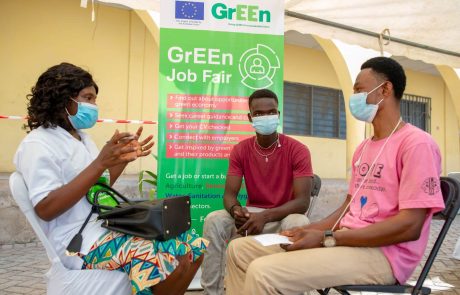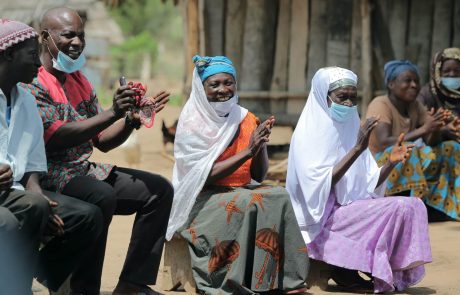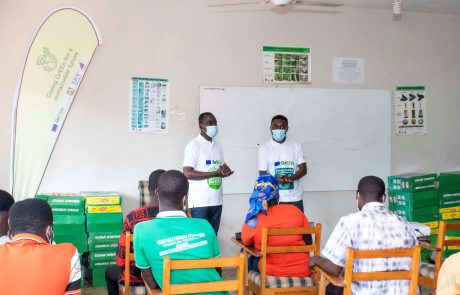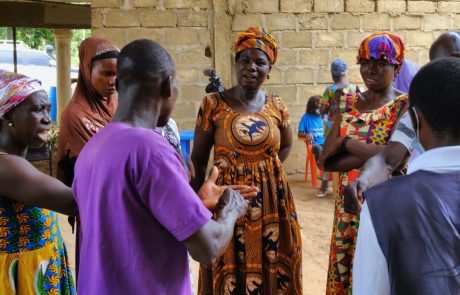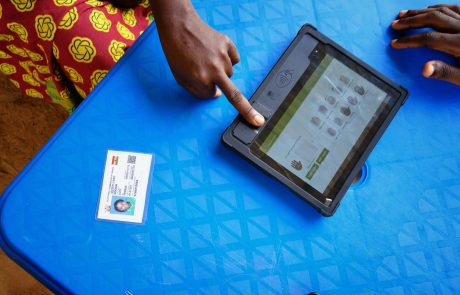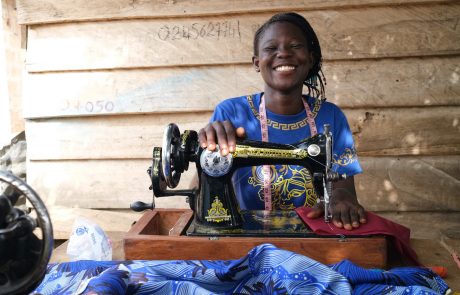The GrEEn project promotes climate resilient communities, addresses skills gaps and increases access to finance for returnees, youth and women.
The GrEEn project is a joint action of the EUTF, the Embassy of the Kingdom of the Netherlands in Ghana, UNCDF and SNV. The project promotes climate resilient communities, addresses skills gaps and increases access to finance for returnees, youth and women. It supports job creation and self-employment opportunities by incubating and financing Micro, Small and Medium Enterprises (SMEs). The project aims to help youth who face high barriers to labor market entry as a result of low formal education, lack of formal qualifications, and skills training. Likewise, women continue to face labor market barriers due to social and cultural norms. Further, limited access to finance remains a barrier for jumpstarting new businesses.
The evaluation focuses on the three interventions: 1) a Cash for Work (CfW) project, light trainings, and access to finance and financial literacy trainings rolled out between 2021 and 2022 for women, youth and returnees; 2) the Opportunities for Youth Employment program (including in-depth trainings, job placements, mentorships or entrepreneurial training and support) for women, youth and returnees; 3) incubation and/or acceleration services for Micro, Small and Medium Enterprises (MSMEs). Beneficiaries of intervention (1) will be able to apply and transition to intervention (2).
What methods will be employed?
A counterfactual impact evaluation (CIE) will be conducted to evaluate intervention 1 and its extension to intervention 2 using an RCT stratified across CfW project sites.
RDD or PSM may be used to evaluate the transition from intervention 1 to 2. Baseline data will be collected using applications to the intervention. By the end of the study, about 2,700 participants are expected to be included. The methods will provide insight into the effectiveness of the intervention on improving employment.
Interventions 2 and 3 will be evaluated using panel data, whereby characteristics will be captured at baseline and key outcomes will be tracked each year, for 3 years. Currently, it is expected that sample sizes per wave will be 350-600-600, with panel data on beneficiaries, and 59-100-100 for panel data on MSMEs. Qualitative data collection will consist of a series of interviews and focus groups with beneficiaries, implementers, and other key stakeholders in 2023. The qualitative research will provide insights into perceived short and long-term impacts of the project, and of the modalities within which it was accomplished.


